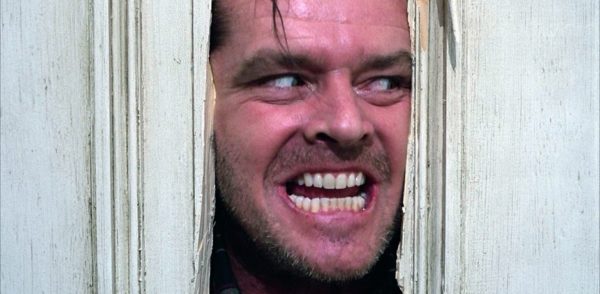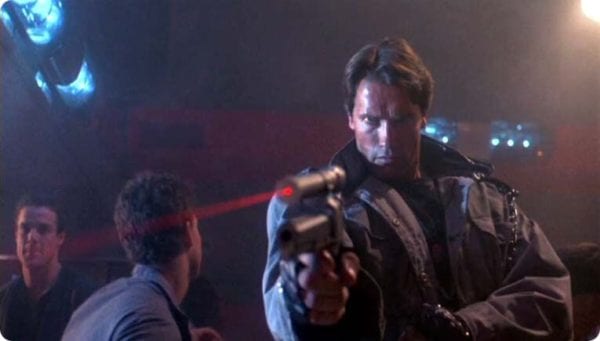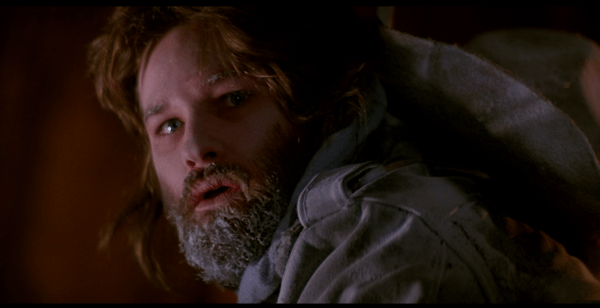As Halloween approaches, Tom Jolliffe looks at the Horror genre, and why it needs more respect…

As a movie lover with a wide ranging taste in films I’ve long been fairly open to an array of genres. It was recently though, and perhaps in part this stems from writing a few horror features of late, that I had a kind of epiphany…I’d overlooked just how engaging, creative and strikingly dramatic horror films can be. You think of all time greats and favourites, my mind would wander first to other genres, as award ceremonies tend to. Much as I’d always liked horror, I’d perhaps not recognised quite the craft.
Why do critics and many award ceremonies not give the genre as much credence as it really deserves? Horror lovers are a unique bunch that’s for sure, because so many of the films are inherently culty. Many may be campy, or pre-occupied with gore. Some have a carefree and haphazard approach. It is after all, a genre that can provide thrills on a low budget if needs be. There’s this predisposition among those who could take or leave horror. Maybe it’s an assumption that it’s somehow lesser. Maybe it’s like Scorsese feels about Marvel films, that a good horror is more intent on the theme park aspects. Indeed some will be focused largely on gore and imaginative offings over characterisation. Yes there are horrors with poor acting, silly plotlines (erm…I hold my hands up…I wrote a killer Scarecrow film) and a feeling of cheapness (that said for some fans, the cheaper and cheesier, the better) but every genre has it’s cheesier levels and indeed a cheesy horror will work better than a searing drama that comes off as odeur de fromage.

I’ve been watching films like The Thing, The Shining, Rosemary’s Baby, Don’t Look Now, The Exorcist, Alien, Italian horror, Japanese horror etc, etc for years. Now of those aforementioned specifics; there’s a commonality…they’re all magnificent. Not just for the genre, but they have exceptional elements, awe inspiring visuals, immense performances, dark, insightful psychological complexity (if you look at something like the way Don’t Look Now deals with loss and grief). Still, despite my love of these films and more, I’d never immediately felt my mind go directly to horror when thinking about favourite genres. Action films in fact, whilst not exactly critically lauded that often, still seem to get more respect. I love action as well, but in terms of deep character focus, or cinematographic genius, there are fewer examples in action than there are in horror in my opinion.

The more I’ve expanded on my horror viewing, or revisits, the more I’ve opened to the genius that the best in the genre can offer. It never even occurred to me either that two great franchise genre shifts exist from classic firsts, to expanded follow-ups. I’ve always been in the Alien over Aliens and Terminator over Terminator 2 camp. That suggests a leaning toward horror. Whilst both respective firsts do cross genres, their ultimate default setting would be Horror. Both ideas come out of nightmares, be it the gruesome Geiger design of the Xenomorph or the T-800, a relentless Cyborg born from a fevered nightmare James Cameron had.
Nuance and auteur film-making is something that too rarely gets acknowledged in horror (and actors and directors particularly need to be exceptional to gain Oscar attention). How is The Shining not a visionary work of impeccably shot art? As maligned as Roman Polanski is, he’s undoubtedly (or was) a film-making genius. Rosemary’s Baby, horror tropes aside, is brilliantly crafted, anchored by an amazing Mia Farrow. The beauty of a film like The Thing too, is how deep it delves into human psychology and paranoia. All the while it’s wonderfully shot and edited and Kurt Russell is immense. He’s Oscar worthy immense…

John Carpenter, who really stood as a genre film maestro is a great film-maker. He never gets mentioned in the same breath as Scorsese, Coppola, Lumet, Hitchcock (whose own diversions into horror came when firmly established, and seem to inspire some reluctance among some luminaries to even identify something like Psycho as a horror). Carpenter, as with many ‘specialists’ deserves more respect as a craftsman, not just of horror, but film in general. He may not quite have reached Godfather level, but he should be afforded a seat in the same banquet hall as those guys.
There’s a certain freedom too which horror allows. It’s the freedom to really push boundaries and creatively express yourself. It allows a film-maker to almost re-invent cinematic rules. You can push the limits of logical reality with your cinematography. You can do things which are a little odd perhaps. A blue light that has no logical output? What the hey! You need only look at peak era Dario Argento, following in the footsteps of the magnificent Mario Bava, and infusing the Giallo genre with near garish flourishes of style and pop-prog-rock soundtracks. Suspiria is colour drenched arthouse horror masterwork. Deep Red is an epic, over the top and visually resplendent giallo masterpiece. In recent years, someone so unique of vision as Guillermo del Toro, who undoubtedly has some Argento infused in his work, has managed to cross that boundary from ‘genre’ specialist to being an Oscar recognised auteur. Maybe a corner is turning now. That said, it still astonishes me that Toni Colette’s gut-wrenchingly exceptional performance in Hereditary was overlooked at the Oscars. I don’t think, without disrespect to anyone, the final nominees even came close to what she dug up from within herself.

Horror is to explore darker sides, complex recesses of the human psyche. That can allow such guttural, explosive releases of raw power as Colette gifted cinema last year, or looking further back to another as striking with Isabelle Adjani in the delightfully odd, but artistically brilliant, Possession. There’s a sly deviance in wanting to open these doors. Fear is also a complex emotion in itself, but one that seems to get overlooked during award season, and nothing is as frightening as a darkness that infests from within. Often horror can take things beyond the literal and explore metaphor or allegory. It opens up extra dimensions, whether it’s those outward themes of possessive relationships in Possession, or satirising media in Videodrome. You can tell your horror tell while simultaneously scratching beneath the surface on an overriding prescient topic.
So as we approach the day of horror at the end of this month, lest we not forget a genre that has homed some of the greatest directors, delivering some of the finest cinematic crafting, visuals and gut-wrenching performances in cinema history. It’s time the horror genre got the respect it deserves, not merely dismissed as a lesser genre.

Tom Jolliffe is an award winning screenwriter and passionate cinephile. He has several features due out on DVD/VOD in 2019/2020 and a number of shorts hitting festivals. Find more info at the best personal site you’ll ever see here.











